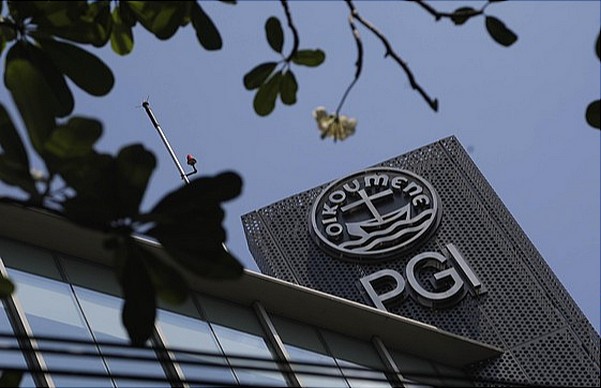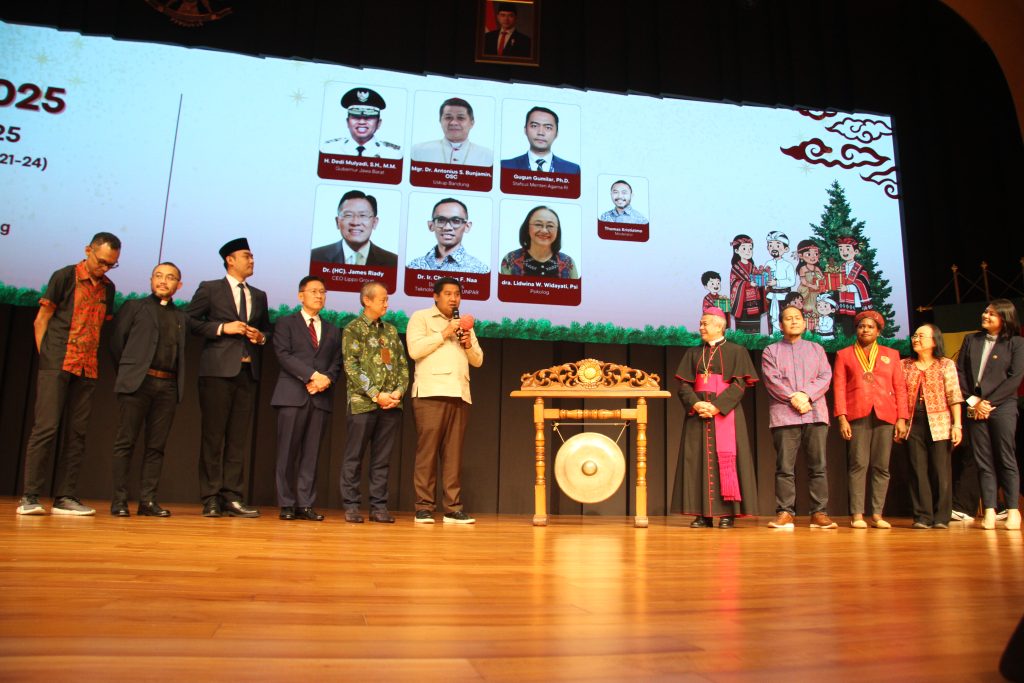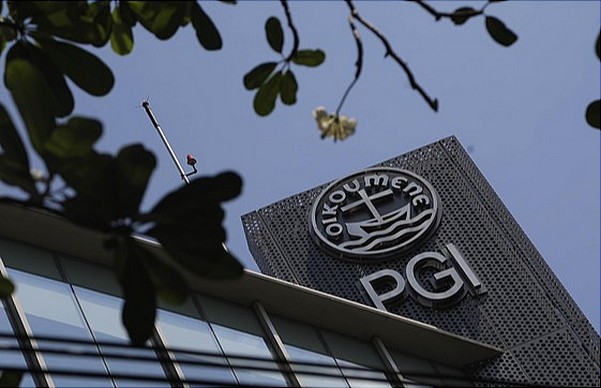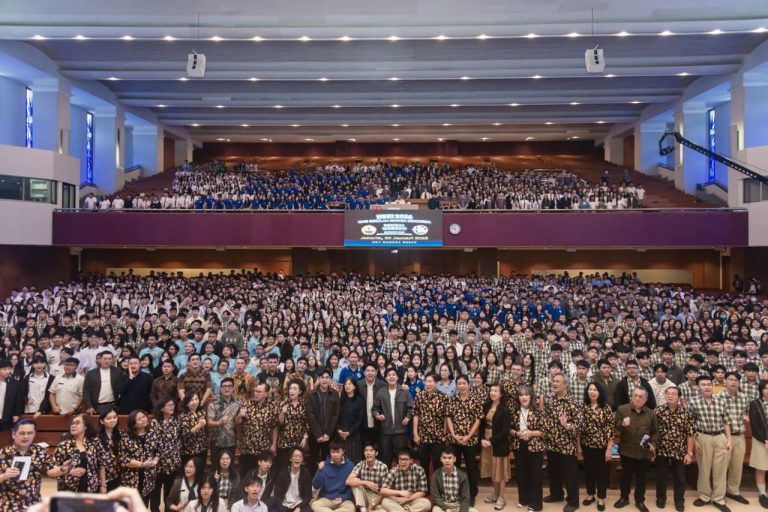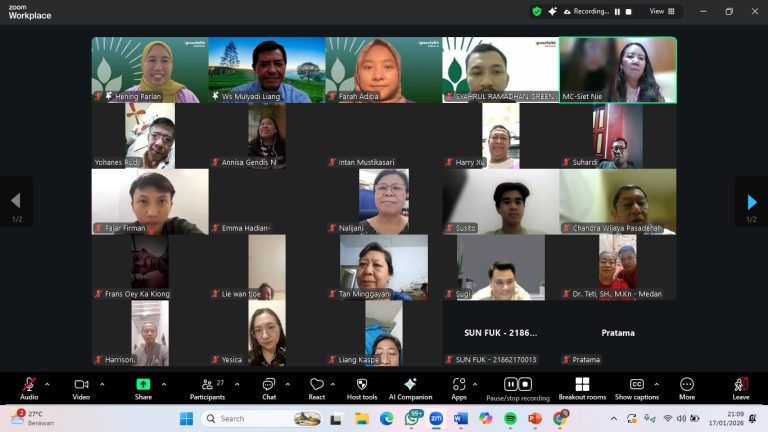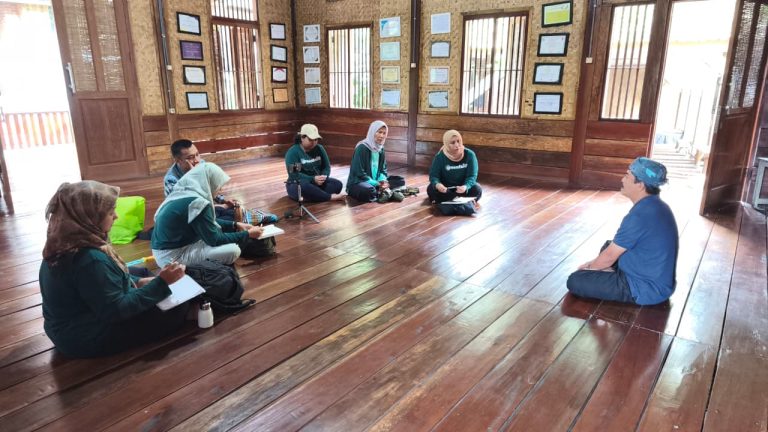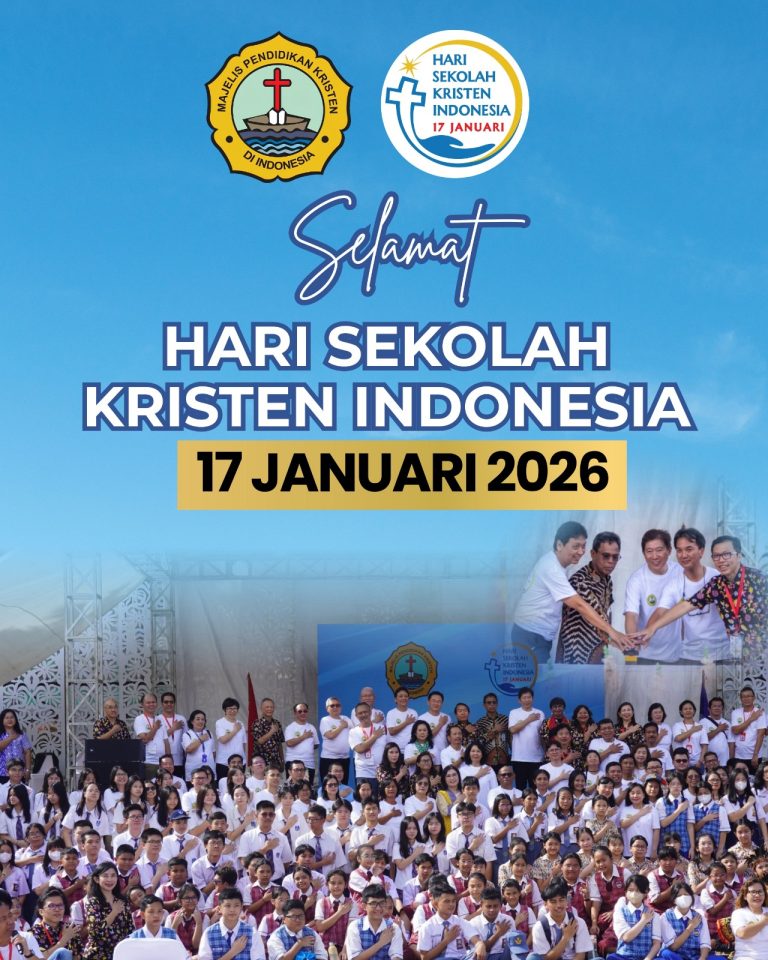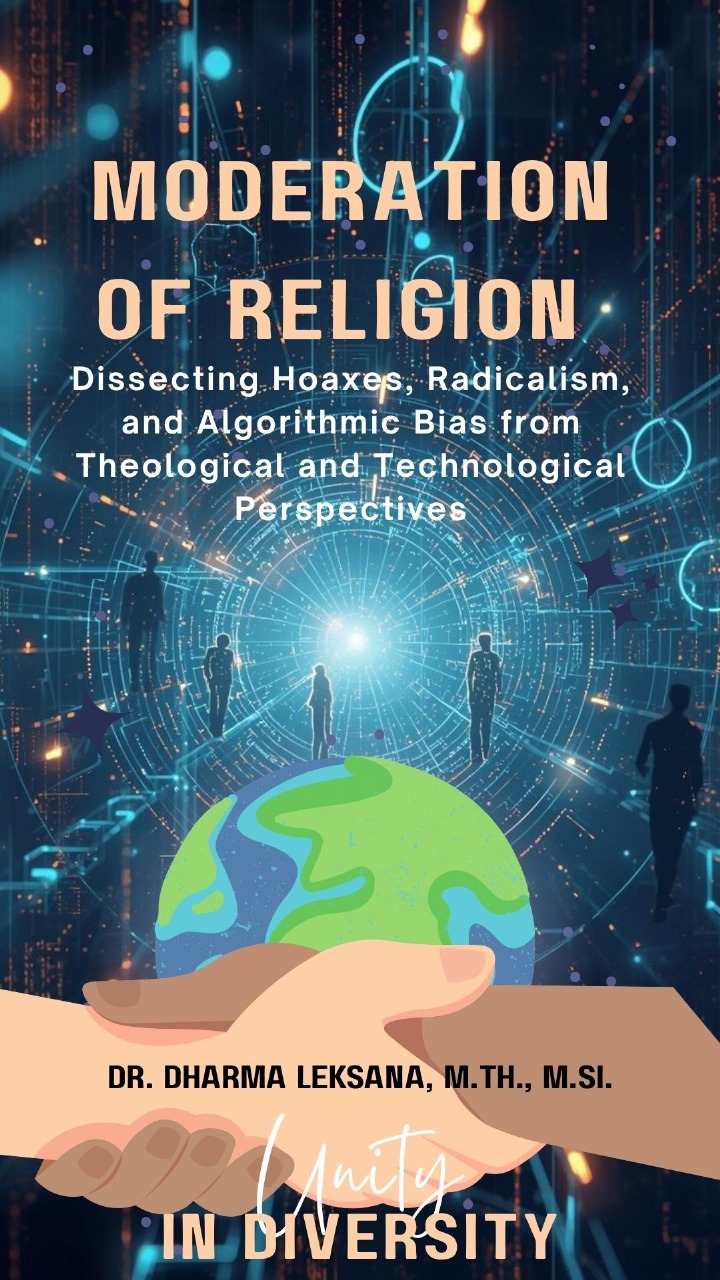
Moderation of Religion in the Age of Information Disruption
Book Review:
Book Information Detail
Title Moderation of Religion in the Age of Information Disruption: Dissecting Hoaxes, Radicalism, and Algorithmic Bias from Theological and Technological Perspectives
Author Dr. Dharma Leksana, M.Th., M.Si.
Publisher PWGI.ORG (Self-Published)
Year of Publication 2025
Moderation of Religion in the Age of Information Disruption
Dissecting Hoaxes, Radicalism, and Algorithmic Bias from Theological and Technological Perspectives
The Main Thesis: Religion as a Spiritual Vaccine Against Infodemic
This book offers a rare synthesis of theology, philosophy, and technology, answering a fundamental question: how can humanity maintain moral and spiritual integrity amid information disruption?
The author, Dr. Dharma Leksana, argues that Religious Moderation in the digital era is not merely an academic program or an ideological compromise, but a 21st-century moral discipline and spiritual responsibility. This discipline ensures that faith does not become a weapon of hatred or a tool for digital propaganda. The core of this project is the effort to “rehumanize technology” and reaffirm the spiritual dignity of humankind within the network.
Information disruption has created a paradox: connectivity without depth, freedom of expression without wisdom, and faith trapped within the digital world’s echo chambers. In this context, Religious Moderation functions as a “spiritual vaccine against the infodemic”—teaching not just what is true, but how to treat the truth in a state of boundless connectivity.
Highlights and In-Depth Analysis
- Moderation as Civic Theology
The book meticulously explores the historical roots of Indonesian Religious Moderation. The author elevates the concept of Bhinneka Tunggal Ika (Unity in Diversity) not just as a political slogan, but as a “social theology” and “civic theology” that binds the nation. The ancient Javanese concept, “Tan Hana Dharma Mangrwa”—there is no duality in truth—from the Kakawin Sutasoma is modernized as a philosophy that rejects religious absolutism and asserts that diversity itself is part of the sacred truth.
Pancasila is analyzed as a theological-political synthesis that establishes the Belief in the One and Only God as a unifying moral foundation, rather than a divisive dogma. According to the author, Indonesia embraces a “theo-humanistic” state model that affirms the divine as the source of ethics while recognizing human pluralism as sacred.
- Confronting Digital Pathologies
The most crucial section is the deep analysis of three main threats in the digital space:
• Hoaxes: The Theology of Falsehood
Religious hoaxes serve as political and identity weapons, exploiting fear and anger. Theologically, a hoax is seen as a sin against the logos—a betrayal of the Word that represents divine truth. The resistance against hoaxes requires digital asceticism—a spiritual self-discipline to verify before sharing.
• Radicalism and the Filter Bubble
Digital radicalism thrives in echo chambers reinforced by social media algorithms, leading to digital radicalization. Radicalism offers certainty amid complexity, replacing reasoning with rhetoric. The antidote is “better theology” that integrates reason, compassion, and self-critique.
• Algorithmic Bias
The book introduces the concept of algorithms as “moral infrastructure” that functions as “invisible spiritual curators.” Since algorithms are designed to maximize engagement, sensational or divisive content gains greater visibility, burying moderate voices. Moderation must evolve into “algorithmic discernment”—the spiritual art of questioning how the digital environment shapes one’s beliefs.
- Transcendent Digital Ethics
As a synthesis, the author offers Transcendent Digital Ethics, a moral framework that is human-centered rather than machine-driven. This ethic demands three practices:
- Verification as Virtue: Checking before sharing.
- Dialogue as Discipline: Engaging instead of attacking, viewing listening as an act of worship.
- Empathy as Epistemology: Understanding others as fellow seekers of meaning.
Conclusion and Significance
Moderation of Religion in the Age of Information Disruption is an essential and highly relevant work. The book not only diagnoses the problem but also offers theological and technological prescriptions deeply rooted in Indonesian local wisdom (Bhinneka Tunggal Ika, Islam Nusantara) and enriched by global critical theory (citing Jean Baudrillard, Paul Ricoeur, Luciano Floridi, etc.). It is a moral guide for anyone—religious leader, academic, or digital citizen—who seeks to practice an ethical faith amidst the information storm.
SEO Keywords and Promotional Hashtags
Religious Moderation Digital,
Digital Ethics and Religion,
Online Radicalism Indonesia,
Religious Hoaxes and Algorithms,
Theology and Technology,
Dr. Dharma Leksana,
How to combat online radicalism,
Role of Pancasila in digital ethics,
Book on Algorithmic Bias,
Spiritual discernment in the digital age,
PWGI.ORG book,
ReligiousModeration,
DigitalEthics,
TheologyAndTech,
AlgorithmicBias,
FaithInTheDigitalAge,
BhinnekaTunggalIka,
DigitalDiscernment,
DrDharmaLeksana,
AntiHoax,
CivicTheology,
Author Profile
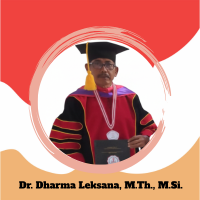
Dr. Dharma Leksana, M.Th., M.Si.
Dr. Dharma Leksana is a theologian, senior journalist, and pioneer of digital Christian media in Indonesia. He earned his Bachelor of Theology from the Faculty of Theology, Duta Wacana Christian University, Yogyakarta, in 1994, before pursuing a Master of Social Sciences (M.Si.) with a focus on media and society. He later completed a Master of Theology (M.Th.) with a thesis titled “Digital Theology: Translating the Missiology of the Church in the Era of Society 5.0.”
His academic journey reached its pinnacle with a Doctorate in Theology (D.Th.) from Dian Harapan Theological Seminary, Jakarta, graduating cum laude. His groundbreaking dissertation, “Algorithmic Theology: A Conceptual Map of Faith in the Digital Age,” introduced the concept of Algorithmic Theology as a new locus for contextualizing faith in today’s digital reality. Through this research, he argued that algorithms can be understood as a new locus theologicus, while the Logos—the Word of God—remains the central axis of Christian faith, even in an age dominated by algorithmic logic.
This dissertation has since been published in two editions:
- Teologi Algoritma: Peta Konseptual Iman di Era Digital (Indonesian)
- Algorithmic Theology: A Conceptual Map of Faith in the Digital Age (English)
His earlier academic work at the master’s level has also been published as “Building the Kingdom of God in the Digital Age.”
Beyond academia, Dr. Leksana is a prolific writer who has authored hundreds of works ranging from scholarly research and popular books to collections of poetry and novels. His writings can be found through PWGI Bookstore and other platforms.
Organizational and Media Leadership
In the field of media and ecclesial service, Dr. Leksana is:
- Founder and Chairman of the Indonesian Church Journalists Association (PWGI)
- Founder of numerous Christian digital media outlets, including:
- wartagereja.co.id
- beritaoikoumene.com
- teologi.digital
- marturia.digital
- and many more under PT Dharma Leksana Media Group (DHARMAEL), where he serves as Commissioner
He also leads and advises several institutions and companies, including:
- Director of PT Berita Siber Indonesia Raya (BASERIN)
- Commissioner of PT Berita Kampus Mediatama
- Commissioner of PT Media Kantor Hukum Online
- Founder & CEO of tokogereja.com
- Chairman of Yayasan Berita Siber Indonesia
- Director of PT Untuk Indonesia Seharusnya
Works and Influence
As both a thinker and practitioner, Dr. Dharma Leksana positions himself as a bridge between theology, digital communication, and social transformation. He is an active writer, speaker, and resource person in church, academic, and media forums.
Among his widely read works are:
- Seeking the Face of God in the Digital Wilderness
- The Missionary Steps of the Early Church
- Religion, AI, and Pluralism
- Edmund Husserl’s Phenomenology in the Digital Era
- Alvin Toffler and Digital Theology
- The Algorithm of God: Reflections on the Programmer of the Universe
- Prophetic Journalism in the Digital Age
- Digital Theology through the Lens of Dietrich Bonhoeffer’s Ethics
Continuing his vocation as a digital theologian, prophetic journalist, and faith educator, Dr. Leksana remains committed to building Christian communication that is contextual, transformative, and attuned to the challenges of the digital age.

